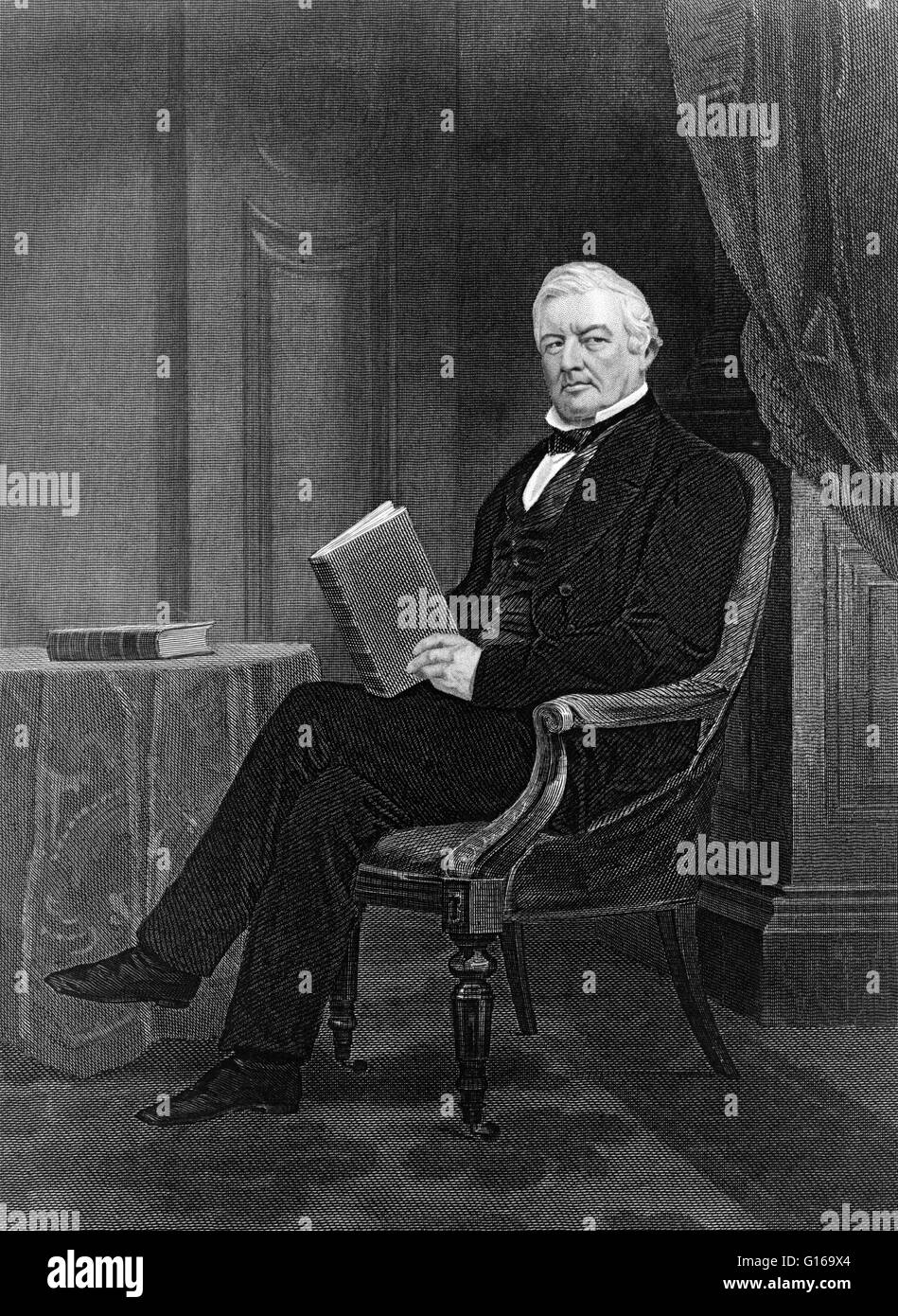Millard Fillmore (January 7, 1800 - March 8, 1874) was the 13th President of the United States (1850-1853) and the last member of the Whig Party to hold the office of president. As Zachary Taylor's Vice President, he assumed the presidency after Taylor's

Image details
Contributor:
Science History Images / Alamy Stock PhotoImage ID:
G169X4File size:
38.9 MB (3.3 MB Compressed download)Releases:
Model - no | Property - noDo I need a release?Dimensions:
3150 x 4314 px | 26.7 x 36.5 cm | 10.5 x 14.4 inches | 300dpiPhotographer:
Photo ResearchersMore information:
This image could have imperfections as it’s either historical or reportage.
Millard Fillmore (January 7, 1800 - March 8, 1874) was the 13th President of the United States (1850-1853) and the last member of the Whig Party to hold the office of president. As Zachary Taylor's Vice President, he assumed the presidency after Taylor's death. Millard Fillmore (January 7, 1800 - March 8, 1874) was the 13th President of the United States (1850-1853) and the last member of the Whig Party to hold the office of president. As Zachary Taylor's Vice President, he assumed the presidency after Taylor's death. He opposed the proposal to keep slavery out of the territories annexed during the Mexican-American War in order to appease the South and so supported the Compromise of 1850, which he signed, including the Fugitive Slave Act (Bloodhound Law) which was part of the compromise. On the foreign policy front, he furthered the rising trade with Japan and clashed with the French over Napoleon III's attempt to annex Hawaii and with the French and the British over the attempt of Narciso López to invade Cuba. After his presidency, he joined the Know-Nothing movement. Throughout the Civil War, he opposed President Lincoln and during Reconstruction supported President Johnson. He is consistently included in the bottom 10 of historical rankings of Presidents of the United States. He died in 1874, of the aftereffects of a stroke., at the age of 74. His last words were alleged to be, upon being fed some soup, "the nourishment is palatable."